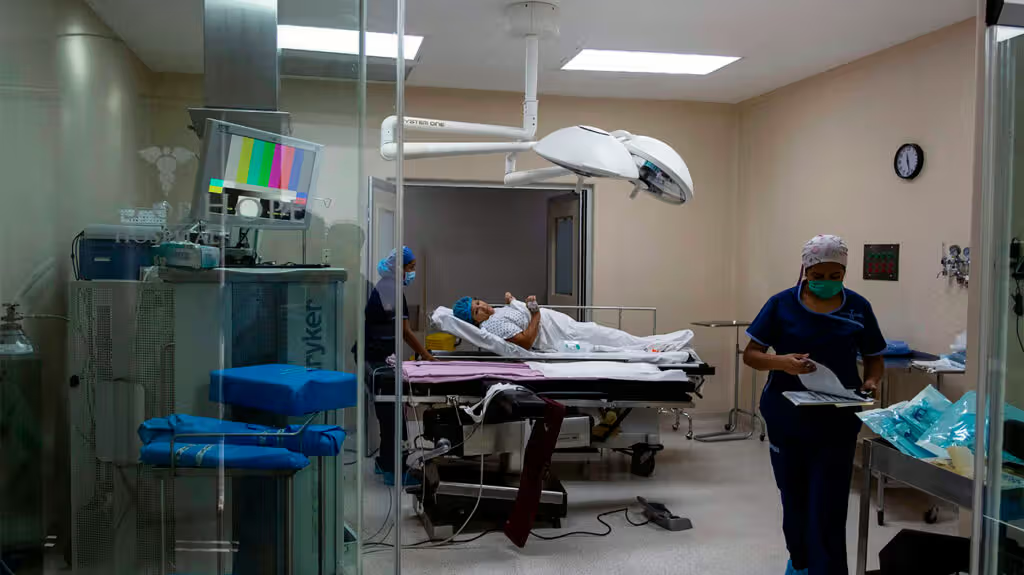- Home
- Medical news & Guidelines
- Anesthesiology
- Cardiology and CTVS
- Critical Care
- Dentistry
- Dermatology
- Diabetes and Endocrinology
- ENT
- Gastroenterology
- Medicine
- Nephrology
- Neurology
- Obstretics-Gynaecology
- Oncology
- Ophthalmology
- Orthopaedics
- Pediatrics-Neonatology
- Psychiatry
- Pulmonology
- Radiology
- Surgery
- Urology
- Laboratory Medicine
- Diet
- Nursing
- Paramedical
- Physiotherapy
- Health news
- Fact Check
- Bone Health Fact Check
- Brain Health Fact Check
- Cancer Related Fact Check
- Child Care Fact Check
- Dental and oral health fact check
- Diabetes and metabolic health fact check
- Diet and Nutrition Fact Check
- Eye and ENT Care Fact Check
- Fitness fact check
- Gut health fact check
- Heart health fact check
- Kidney health fact check
- Medical education fact check
- Men's health fact check
- Respiratory fact check
- Skin and hair care fact check
- Vaccine and Immunization fact check
- Women's health fact check
- AYUSH
- State News
- Andaman and Nicobar Islands
- Andhra Pradesh
- Arunachal Pradesh
- Assam
- Bihar
- Chandigarh
- Chattisgarh
- Dadra and Nagar Haveli
- Daman and Diu
- Delhi
- Goa
- Gujarat
- Haryana
- Himachal Pradesh
- Jammu & Kashmir
- Jharkhand
- Karnataka
- Kerala
- Ladakh
- Lakshadweep
- Madhya Pradesh
- Maharashtra
- Manipur
- Meghalaya
- Mizoram
- Nagaland
- Odisha
- Puducherry
- Punjab
- Rajasthan
- Sikkim
- Tamil Nadu
- Telangana
- Tripura
- Uttar Pradesh
- Uttrakhand
- West Bengal
- Medical Education
- Industry
Bariatric surgery cuts use of medications for hypertension, diabetes and dyslipidemia, suggests study

Bariatric surgery cuts use of medications for hypertension, diabetes and dyslipidemia, suggests study published in the Surgery for Obesity and Related Diseases.
Limited evidence exists on the patterns of medication use for hypertension, diabetes mellitus (DM), and dyslipidemia after bariatric surgery among Asian patients. A study was done to investigate the patterns in the use of blood pressure-lowering, glucose-lowering, and lipid-lowering medications following Bariatric surgery in Korean patients with morbid obesity. This study is a retrospective cohort study using the Health Insurance Review and Assignment claims database of South Korea (from 2019 to 2021). They included patients who underwent Bariatric surgery between 2019 and 2020 in South Korea. We evaluated the treatment patterns of blood pressure-lowering, glucose-lowering, and lipid-lowering medications at 3-month intervals for 1-year following BS, including medication use, individual medication classes, and the number of medications prescribed.
Furthermore, we estimated remission rates for each disorder based on patient characteristics by defining patients who discontinued their medications for at least 2 consecutive quarters as remission. RESULTS: A total of 3810 patients were included in this study. For 1-year following Bariatric surgery, a marked decrease in the number of patients using blood pressure-lowering, glucose-lowering, and lipid-lowering medications was observed. The most remarkable decrease occurred in glucose-lowering medications, which decreased by approximately -75.1% compared with that at baseline. This tendency was consistently observed when analyzing both the number of medications prescribed and the specific medication classes. Regarding remission rates, patients who were female, younger, and received the biliopancreatic diversion-duodenal switch as their Bariatric surgery showed a relatively higher incidence of remission than other groups. Bariatric surgerywas associated with a decrease in the use of medications for hypertension, diabetes mellitus (DM), and dyslipidemia.
Reference:
Jeon, Soo Min, et al. "Discontinuation of Blood Pressure-lowering, Glucose-lowering, and Lipid-lowering Medications After Bariatric Surgery in Patients With Morbid Obesity: a Nationwide Cohort Study in South Korea." Surgery for Obesity and Related Diseases : Official Journal of the American Society for Bariatric Surgery, 2024.
Dr. Shravani Dali has completed her BDS from Pravara institute of medical sciences, loni. Following which she extensively worked in the healthcare sector for 2+ years. She has been actively involved in writing blogs in field of health and wellness. Currently she is pursuing her Masters of public health-health administration from Tata institute of social sciences. She can be contacted at editorial@medicaldialogues.in.
Dr Kamal Kant Kohli-MBBS, DTCD- a chest specialist with more than 30 years of practice and a flair for writing clinical articles, Dr Kamal Kant Kohli joined Medical Dialogues as a Chief Editor of Medical News. Besides writing articles, as an editor, he proofreads and verifies all the medical content published on Medical Dialogues including those coming from journals, studies,medical conferences,guidelines etc. Email: drkohli@medicaldialogues.in. Contact no. 011-43720751


